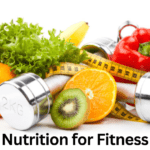Prioritize your heart health and discover the key to a longer, healthier life with our comprehensive guide.

The capacity of the heart, lungs, and circulatory system to effectively supply oxygen-rich blood to the working muscles is referred to as cardiovascular fitness, also known as aerobic fitness or cardiorespiratory fitness.
It is a crucial component of overall fitness and plays a vital role in maintaining heart health and endurance.
By engaging in regular cardiovascular exercise, individuals can experience numerous benefits and improve their overall well-being.
Table of Contents
ToggleBenefits of Cardiovascular Fitness
Reduced risk of heart disease
Regular cardiovascular exercise helps lower the risk of heart disease by strengthening the heart muscle, improving blood circulation, and reducing blood pressure and cholesterol levels.
Improved cardiovascular function
Engaging in aerobic activities increases the efficiency of the heart and lungs, allowing them to supply oxygen to the body more effectively.
This leads to improved cardiovascular function and better overall health.
Increased endurance and stamina
Cardiovascular fitness enhances endurance and stamina, enabling individuals to perform physical activities for longer periods without experiencing fatigue or shortness of breath.
Enhanced oxygen supply to muscles
Regular aerobic exercise stimulates the development of new capillaries, the tiny blood vessels that deliver oxygen to the muscles.
This results in improved oxygen supply, enhancing muscle performance and reducing the risk of muscle fatigue.
Weight management and improved metabolism
Cardiovascular exercises aid in calorie burning and healthy weight maintenance.
They also boost metabolism, leading to increased energy expenditure even during rest.
Ways to Improve Cardiovascular Fitness
Improving cardiovascular fitness is crucial for enhancing the health and efficiency of your heart, lungs, and circulatory system. Here are several effective ways to improve your cardiovascular fitness:
Aerobic Exercise
Engage in regular aerobic activities that elevate your heart rate and increase your breathing rate. Examples include running, jogging, swimming, cycling, brisk walking, dancing, and rowing.
Set a weekly target of 150 minutes of moderate aerobic activity or 75 minutes of vigorous aerobic activity.
High-Intensity Interval Training (HIIT)
Incorporate HIIT workouts into your routine. brief periods of vigorous activity are interspersed with quick rest intervals in HIIT.
This method improves cardiovascular fitness by challenging your heart and lungs to work at higher intensities.
Examples of HIIT exercises include sprint intervals, jumping jacks, burpees, and mountain climbers.
Circuit Training
Perform circuit training workouts that combine aerobic exercises with strength exercises.
This approach provides a cardiovascular challenge while also building muscular strength and endurance.
Alternate between different exercises with minimal rest in between to keep your heart rate elevated.
Outdoor Activities
Take advantage of outdoor activities that naturally increase your cardiovascular fitness.
Activities such as hiking, biking, swimming in open water, playing sports like soccer or basketball, and even gardening can help improve your cardiovascular health while enjoying the outdoors.
Stair Climbing
Incorporate stair climbing into your daily routine. Climbing stairs is a highly effective cardiovascular exercise that engages major muscle groups and increases your heart rate.
Whether it’s using a stair machine at the gym or taking the stairs instead of the elevator, stair climbing can significantly boost your cardiovascular fitness.
Designing an Effective Cardiovascular Fitness Program
Designing an effective cardiovascular fitness program involves careful planning and consideration of various factors. Here are key steps to create a well-rounded program:
Set Clear Goals
Determine your specific cardiovascular fitness goals. Whether it’s improving endurance, increasing cardiovascular health, or training for a specific event, clearly define what you want to achieve.
Setting goals helps you stay motivated and track your progress.
Choose Suitable Activities
Select activities that align with your goals, interests, and fitness level. Opt for aerobic exercises that elevate your heart rate and challenge your cardiovascular system.
Examples include running, cycling, swimming, rowing, dancing, and aerobics classes. Mix up your routine to keep it engaging and prevent boredom.
Determine Frequency
Decide how many days per week you will dedicate to cardiovascular exercise.
Aim for a minimum of three to five sessions per week to see improvements in cardiovascular fitness.
Beginners may start with fewer sessions and gradually increase frequency over time.
Establish Duration
Determine the duration of each cardiovascular session based on your current fitness level and goals.
Initially, aim for 20-30 minutes of continuous exercise and gradually increase it to 45-60 minutes as your fitness improves.
If time is limited, consider incorporating high-intensity interval training (HIIT) to maximize the benefits in shorter sessions.
Monitor Intensity
Pay attention to your exercise intensity to ensure you’re challenging your cardiovascular system appropriately. One way to monitor intensity is by using your heart rate.
Calculate your target heart rate zone (typically 50-85% of your maximum heart rate) and aim to exercise within that range. You can manually take your pulse or use a heart rate monitor.
Dietary Considerations for Cardiovascular Fitness
Diet plays a vital role in supporting cardiovascular fitness and overall heart health. Consider the following dietary considerations to optimize your cardiovascular fitness program:
Balanced Macronutrients: Consume a well-balanced diet that includes adequate amounts of carbohydrates, proteins, and healthy fats. Carbohydrates provide the energy needed for cardiovascular exercise, while proteins support muscle repair and recovery. Include sources of healthy fats like avocados, nuts, seeds, and fatty fish to promote heart health.
Whole Foods: As the cornerstone of your diet, concentrate on consuming whole, unprocessed foods. Fill your plate with a variety of fruits, vegetables, whole grains, lean proteins, and legumes. These foods are rich in essential nutrients, fiber, and antioxidants that support cardiovascular health.
Heart-Healthy Fats: Include sources of heart-healthy fats in your diet, such as avocados, olive oil, nuts, seeds, and fatty fish like salmon or mackerel. These fats contain omega-3 fatty acids, which have been shown to reduce inflammation and improve heart health.
Fiber-Rich Foods: Consume ample amounts of dietary fiber from sources like fruits, vegetables, whole grains, and legumes. Fiber helps lower cholesterol levels, maintain healthy blood pressure, and regulate blood sugar levels. Set a daily fiber intake goal of at least 25–30 grams.
Limit Saturated and Trans Fats: Reduce your intake of saturated fats and avoid trans fats as much as possible. Saturated fats are found in high amounts in fatty meats, full-fat dairy products, and processed snacks. Trans fats are commonly found in fried foods, baked goods, and packaged snacks.These fats have the potential to increase cholesterol levels and heart disease risk.
Dietary Considerations for Cardiovascular Fitness
Diet plays a vital role in supporting cardiovascular fitness and overall heart health.
Consider the following dietary considerations to optimize your cardiovascular fitness program:
Balanced Macronutrients
Consume a well-balanced diet that includes adequate amounts of carbohydrates, proteins, and healthy fats.
Carbohydrates provide the energy needed for cardiovascular exercise, while proteins support muscle repair and recovery.
Include sources of healthy fats like avocados, nuts, seeds, and fatty fish to promote heart health.
Whole Foods
Focus on building your diet around eating whole, unprocessed foods. Fill your plate with a variety of fruits, vegetables, whole grains, lean proteins, and legumes.
These foods are rich in essential nutrients, fiber, and antioxidants that support cardiovascular health.
Heart-Healthy Fats
Include sources of heart-healthy fats in your diet, such as avocados, olive oil, nuts, seeds, and fatty fish like salmon or mackerel.
These fats contain omega-3 fatty acids, which have been shown to reduce inflammation and improve heart health.
Fiber-Rich Foods
Consume ample amounts of dietary fiber from sources like fruits, vegetables, whole grains, and legumes.
Fiber helps lower cholesterol levels, maintain healthy blood pressure, and regulate blood sugar levels. Set a daily fiber intake goal of at least 25–30 grams.
Lifestyle Factors for Cardiovascular Fitness
In addition to exercise and diet, several lifestyle factors can significantly impact cardiovascular fitness and overall heart health. Consider the following lifestyle considerations to support your cardiovascular fitness:
Quit Smoking: Smoking is a major risk factor for heart disease and can significantly impair cardiovascular health. Quitting smoking is one of the most beneficial actions you can take for your heart. To help you stop smoking, look for assistance from medical specialists, support groups, or smoking cessation programs.
Managing Stress: Long-term stress can harm cardiovascular health. Find healthy ways to manage and cope with stress, such as practicing relaxation techniques (deep breathing, meditation, yoga), engaging in hobbies or activities you enjoy, spending time with loved obtaining assistance from a therapist or counselor if necessary.
Make Quality Sleep a Priority: Aim for 7-8 hours of restful sleep each night. Sufficient sleep supports cardiovascular health by allowing for proper recovery and restoration. Establish a regular sleep routine, create a sleep-friendly environment, and practice good sleep hygiene habits, such as avoiding caffeine and electronic devices close to bedtime.
Maintain a Healthy Weight: Achieving and maintaining a healthy weight is beneficial for cardiovascular fitness. Excess body weight, particularly around the waistline, can increase the risk of heart disease. Incorporate regular physical activity, follow a balanced diet, and seek guidance from healthcare professionals for sustainable weight management.
Regular Health Check-ups: Schedule regular check-ups with your healthcare provider to monitor your overall health, including cardiovascular health. Regular blood pressure and cholesterol screenings, as well as other relevant tests, can help detect any potential risks or early signs of heart disease. Follow your healthcare provider’s recommendations for preventive screenings and take the necessary steps to manage any underlying conditions.
Conclusion
In conclusion, cardiovascular fitness is crucial for maintaining a healthy heart and overall well-being.
By incorporating regular exercise, following a balanced diet, and adopting positive lifestyle habits, you can improve your cardiovascular fitness and reduce the risk of heart disease.
A well-designed cardiovascular fitness program includes a variety of aerobic exercises, progressive overload, and adequate rest and recovery.
It is important to set clear goals, monitor intensity, and gradually increase the duration and intensity of your workouts over time.
Additionally, considering factors such as warm-up and cool-down, tracking progress, and listening to your body’s signals are essential for a successful program.




